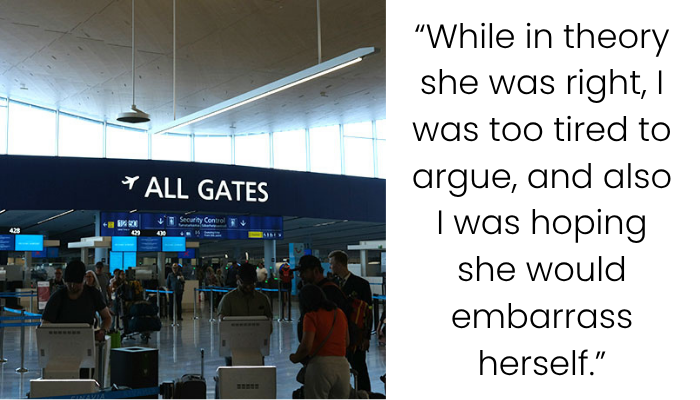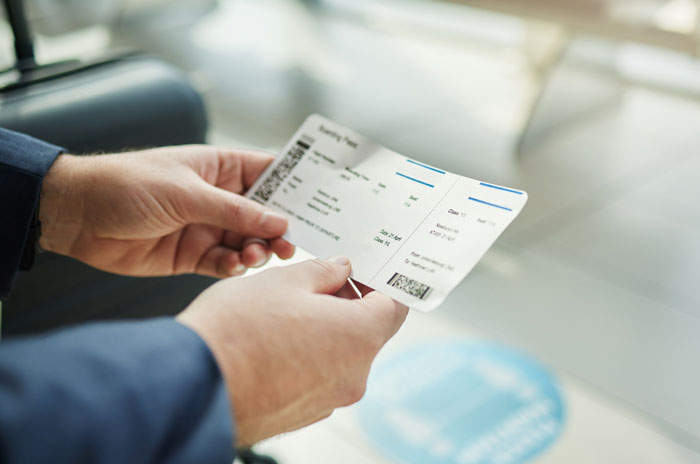“We’re All Getting on the Same Plane”: Entitled Passenger Denied Boarding Privilege on JetBlue Flight

During routine boarding on a JetBlue flight, a frequent flyer was confronted with an all-too-familiar case of entitled travel behavior. While standing in line with group D—his rightful boarding group—a woman from group F boldly cut in front of him, dismissing protocol with a smug, “We’re all getting on the same plane, right?” What followed was a textbook example of how airlines enforce boarding group systems, and how not all passengers are willing to respect boundaries. Despite her insistence, she was swiftly called out by the flight attendant and denied boarding until her group was officially called.
Advertisement – Continue Reading Below
This incident is a microcosm of a growing trend in modern air travel: the erosion of boarding etiquette. With airlines using structured systems for priority boarding, passengers frequently face situations where others attempt to bypass rules under false pretenses or social pressure. This tale, though simple on the surface, reveals deeper issues around entitlement, airline policy enforcement, and the psychology behind cutting in line.
People have been using all sorts of tricks to cut into boarding lines at the airport

When one Karen did so at the expense of a frequent flyer, he stood back and watched karma get to work






When Boundaries Become Boarding Passes ✈️
1. The Invisible Walls of Priority Boarding
Airline boarding groups like JetBlue’s A–F system are more than just organizational tools—they’re a signal. They say: “You earned this.” Your Group D pass represented not only your seat assignment but your right to board at that moment. When the woman behind you hopped ahead—confident her group F pass entitled her—she literally crossed an invisible line drawn by airline protocols.
Advertisement – Continue Reading Below
Temporarily bypassing this system may seem harmless, but research shows non-compliance impacts efficiency. A study from the University of Groningen found that when passengers ignore their boarding zones, boarding time increases significantly due to pile-ups and congestion But for you, it wasn’t about timing—it was a boundary violation born of entitlement.
2. The “Gate-Lice” Culture of Early Boarding
Frequent flyers coined the term “gate lice” for this behavior: hovering around the gate before being called. It’s more than impatience—it’s covert competition. People linger early to claim bin space or a head start. A recent NY Post report noted travelers demanding airlines take action—“travelers are calling on airlines to actively stop line-cutters” nypost.com. In fact, American Airlines is already experimenting with alert systems that sound an alarm if someone tries to board too early sciencedirect.com+10thesun.co.uk+10wsj.com+10, and the phenomenon even has its own Wikipedia page titled “Gate lice”
Yet here’s the kicker: while most airlines are scrambling to enforce boundaries, gate lice often get away with it through social pressure and lack of policing—until the scan fails and the attendant calls them out.
Advertisement – Continue Reading Below
3. The Psychology Behind Flight Gate Contention
Why do people do it? Psychologists say it’s two-fold: scarcity and conformity. Overhead bin space feels limited, triggering competition. And when someone sees someone else stepping forward, they follow suit, believing it’s their turn too It’s basic herd behavior—reinforced each time your neighbor cuts in.
That social dynamic is what fuels impatience and inflates gate lice numbers. And yet, it’s often polite travelers—like you—who silently endure it or step aside, preferring harmony over confrontation. Until someone hits the scan gate and that boundary glows in neon “no.”

4. The Role of Priority Systems—and When They Protect You
Airlines design priority boarding to reward frequent flyers, families, military personnel, and others. JetBlue’s group system reflects both seat location and perks: Mosaic and Mint elites board first, Even More Space customers come next, followed by letters A–F It’s not arbitrary—it’s revenue-generating structure, efficiency, and exclusivity packaged into a boarding lineup.
Advertisement – Continue Reading Below
These systems protect your rights—and when someone jumps your spot, it’s not a petty etiquette gripe—it’s a violation of what you paid for, whether in points or status.
5. When Human Courtesy Turns Into Ahead-Of-Time Bullying
That woman said, “We’re all getting on the same plane.” To her, the boarding process was optional. If she just tried, maybe they’d let her slip.
But courtesy can too easily morph into gaslighting—suggesting that you’re selfish for wanting the structure kept. Many airlines and frequent flyers attest that even mild blame—a rolled eye, a “selfish” label—can pressure well-intentioned travelers into submission .
Advertisement – Continue Reading Below
You, however, stood firm: you didn’t know her, you were in line, and the rule was clear. The attendant’s intervention was swift, validating your stance.
6. What Happens When Lines Blur—and Why It Matters
Evidence suggests that boarding out of turn slows flights. A simulation by Iliescu and colleagues found that priority boarding had limited impact when zones were blurred or bypassed; actual boarding time increased as passengers clustered out of order—and families and priority flyers still held up the line fse.studenttheses.ub.rug.nl. Experts argue that if boarding groups aren’t enforced, the whole system fails—delays magnify, stress increases, and the advantage of paying or qualifying for priority evaporates.
Without enforcement, the silent queue becomes meaningless. And as you discovered, enforcement—when it’s firm—works. You walked past her, ticket scanned, boundaries upheld.
Advertisement – Continue Reading Below
7. The Emotional Payoff: Validation—and That Satisfied Smile
When the attendant said they’d call authorities if she didn’t move, the theater of validation unfolded spectacularly. You didn’t escalate—it escalated itself. And when she backed off, the sigh of relief and little smile that followed? That was emotional justice.
You laughed—because it felt good to be on the right side of fairness. To hold your ground. To have the system validate your spot in line, and by extension, your respect for the rules you paid—or earned—through loyalty and points.

8. Boarding Etiquette: A Guide for Travelers
Your story highlights a universal issue—and there are etiquette standards to reduce friction:
Advertisement – Continue Reading Below
- Stay seated until your zone is called. That’s precisely what airlines design.
- Avoid “gate licheness”: Stand at the boarding area only when invited.
- Carry your boarding pass visibly. Contactless scanning sometimes hides group designation, making enforcement harder.
- Speak up politely: If someone tries to cut, a gentle reminder—“Group D is boarding now”—can be enough.
- Allow agents to manage enforcement. Don’t get confrontational; rely on the system.
These small steps support the system—and respect the time and money passengers invest.
9. The Bigger Picture: Why Boarding Order Matters to You—and Airlines
It’s easy to see boarding rules as arbitrary—but they’re not. Fast and organized boarding saves airlines millions: boarding an extra minute slower can cost ~$30 per minute per aircraft, per turnaround model . That adds up fast over multiple flights daily.
At the same time, travelers reap the rewards: priority boarding isn’t fluff—it’s tangible value in overhead bin space, seat arrangement, and peace of mind.
Advertisement – Continue Reading Below
By enforcing your spot, JetBlue honored the economic bargain you entered: you earned Group D, and you’d pay—in dollars or penalties—if someone took it unfairly. You used smart behavior; they enforced the rules; and she left with a lesson.
10. Final Takeaway: Respect the Line, Respect Each Other
This doesn’t just protect boarding protocol—it protects mutual respect. When you queue, you acknowledge that others are ahead due to reasoned rules (status, purchase, need). When someone cuts, they disrespect that structure—and you.
Your story isn’t just a humorous anecdote—it’s a blueprint:
Advertisement – Continue Reading Below
- Observe boarding etiquette.
- Value your earned position.
- Speak up quietly when needed.
- Let staff uphold policy.
- Walk on board with righteous satisfaction.
You didn’t just board a plane—you validated fairness.
Netizens came to the comments, and many felt that the Karen deserved the karma














